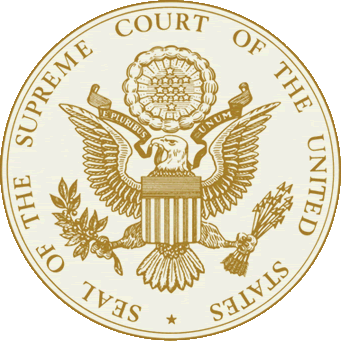The Supreme Court of the United States (SCOTUS) on Nov. 5 accepted three additional cases for argument during its 2021-2022 term:
- Ruan v. United States (Consolidated with Kahn v. United States)
- Marietta Memorial Hospital Employee Health Benefit Plan v. DaVita, Inc.
- Egbert v. Boule
Ruan concerns the good faith defense available to defendants charged under the U.S. Controlled Substances Act. The question presented to the court in the case is: “[W]hether a physician alleged to have prescribed controlled substances outside the usual course of professional practice may be convicted under Section 841(a)(1) without regard to whether, in good faith, he ‘reasonably believed’ or ‘subjectively intended’ that his prescriptions fall within that course of professional practice.” Ruan originated from the U.S. Court of Appeals for the 11th Circuit, and Kahn came from the U.S. Court of Appeals for the 10th Circuit.
Marietta Memorial Hospital originated from the U.S. Court of Appeals for the 6th Circuit and concerns the Medicare Secondary Payer Act. The Act prohibits group health plans from considering a plan participant’s eligibility when the individual has end-stage renal disease and from providing different benefits to these individuals than from other covered participants. The court was asked to consider the following questions:
- "Congress enacted the Medicare Secondary Payer Act as a means to conserve Medicare resources. Among other things, the Act provides that group health plans may not 'take into account' the fact that a plan participant with end stage renal disease is eligible for Medicare benefits. Does a group health plan that provides uniform reimbursement of all dialysis treatments observe that prohibition?"
- "Under the Medicare Secondary PayerAct, a group health plan also may not ‘differentiate’ between individuals with end stage renal disease and others ‘in the benefits it provides.’ Does a plan that provides the same dialysis benefits to all plan participants, and reimburses dialysis providers uniformly regardless of whether the patient has end stage renal disease, observe that prohibition?"
- "Is the Medicare Secondary Payer Act a coordination-of-benefits measure designed to protect Medicare, not an antidiscrimination law designed to protect certain providers from alleged disparate impact of uniform treatment?"
Egbert came from the U.S. Court of Appeals for the 9th Circuit and concerns the U.S. Supreme Court’s ruling in Bivens v. Six Unknown Federal Narcotics Agents (1971). In Bivens claims, private individuals may sue FBI agents for violating their Fourth, Fifth, and/or Eighth Amendment rights. The questions presented in Egbert ask:
- "Whether a cause of action exists under Bivens for First Amendment retaliation claims?"
- "Whether a cause of action exists under Bivens for claims against federal officers engaged in immigration-related functions for allegedly violating a plaintiff’s Fourth Amendment rights?"
- "Whether the Court should reconsider Bivens?"
The court had agreed to hear 48 cases during its 2021-2022 term as of Nov. 5. Three cases were dismissed, and one case was removed from the argument calendar. Fifteen cases had not yet been scheduled for argument.
To date, the court has issued decisions in two cases, both of which were decided without argument.
Additional reading:



